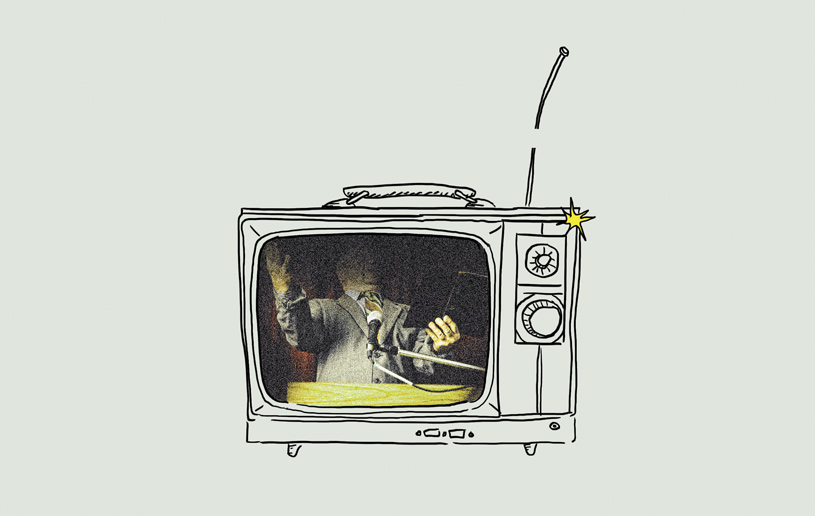
The smiling preacher with the perfect coiffure spouts lines interspersed with words about positivity, God, the Bible, and Jesus. It all sounds great. But do you know whether what he is saying is true or false? His words are golden, but is it fool's gold?
With the plethora of media available today such as TV, Internet, radio, and with the ease of desktop publishing, the number of people teaching the Bible has grown significantly. It seems prudent to talk about the increasing need for Christians to exercise wisdom and discernment when it comes to Bible teachers.
It is a significant issue for Christians today. How do we sift and sort truth from error? Do we all have to be biblical scholars in order to avoid falling into deception and error? And how do we respond to error? Considering some terms will help us sort through the morass:
HERESY
Heresy is defined as “a departure from an essential truth of the Christian faith.”1Denying such core truths as the humanity, deity, sinlessness of Christ (1 John 2:22), His death, and bodily resurrection (1 Corinthians 15:12-19) is heresy. Denying the sinfulness of man and the triune nature of God are both heresies. Heresies relate to the core truths about God, man, and salvation. Many cults that call themselves Christian, such as Mormons and Jehovah's Witnesses are heretical because they depart from historic Christian truths.
ERROR
Error is different than heresy. Obviously because no one knows the Bible perfectly and we are human with biases and prejudices, error creeps into teaching. I once heard someone say, “Twenty per cent of my theology is wrong. The problem is I just don't know which 20 per cent!” That may be a bit overstated but you get the point.
Erroneous Bible teaching is that which relates to secondary issues—points of doctrine that do not relate directly to the central core truths of Christianity and one's salvation. They usually relate to matters of Christian behaviour and belief that are not determinative of our eternal destiny. Teaching about end times, spiritual gifts, and what is considered acceptable for Christians to do or not do usually fall into that category.
I also believe that error and heresy are on a truth continuum, with heresy being on one side of the line with degrees of heresy, and error being on the other side of the line with degrees of error. There is a line between error and heresy that if crossed would move one from simply being in error to actually being a heretic.
Related to heresy and error is the issue of false prophets and false teachers. The Bible warns us that Satan transforms himself into a messenger of light, and therefore it is no wonder that his ministers appear as ministers of righteousness. Satan has ministers in the Church today who preach another Jesus, another gospel, by the power of another spirit. Exercising good discernment was one of the things Jesus commended the Church of Ephesus for. And we are commanded, “Beloved, believe not every spirit, but try the spirits whether they are of God: because many false prophets are gone out into the world” (1 John 4:1 KJV).
There is an important distinction to make here. False prophets and false teachers are the proponents of heresy. This is important to note because I have heard people inaccurately label some Christian teachers as false prophets and false teachers because they teach error. One can still be within the bounds of orthodox Christian doctrine and be teaching error on secondary issues. This may have been the case with Aquilla and Priscilla in their dealing with Apollos (Acts 18:24-26). They had to “explain the way of God to him more accurately.”
Discernment is the ability to judge or distinguish between two things using the wisdom of God's Word. This kind of judging is not wrong. Indeed, it is crucial. We learn to distinguish between truth and error through knowing God's Word and the work of the Holy Spirit within us. The Spirit of God uses the Word of God to reveal and teach the truth that is from Him (John 14:26; 16:12-15; 1 Corinthians 2:13-14).
It is the responsibility of every Christian to be discerning, but our attitude in discerning and confronting error is also important. We must not be hateful, argumentative, or angry. Instead we must expose error with love, kindness, and hope for change (Ephesians 4:15; 2 Timothy 2:24-26). We must listen carefully to what is said and then confront with the faithful Word (Titus 1:9), not our own opinions.
By exercising discernment with the right attitude we'll be able to separate true gold from fool's gold.
1 Witmer, John A. The Theological Wordbook. Nashville: Thomas Nelson, 2000 (160,161).

